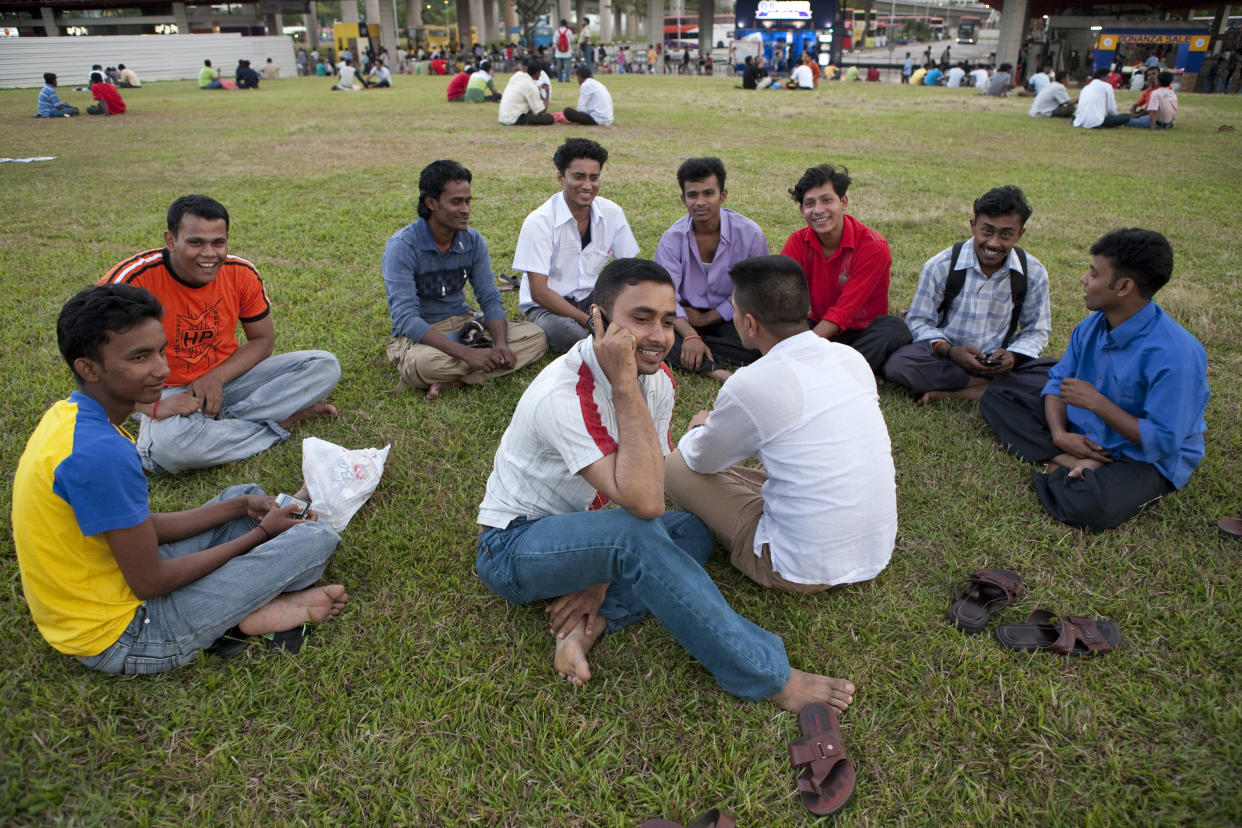Cap for licensed loans to foreign workers slashed to $500 among new lending curbs

SINGAPORE — The Ministry of Law (MinLaw) on Monday (15 July) announced a slew of stronger measures to stem moneylending activities targeting foreigners working and living in Singapore, including a further cut in the cap of loans to them.
Introduced in November last year, the loan cap initially allowed foreigners to borrow a maximum of $1,500 if their annual income were below $10,000.
Will immediate effect from Tuesday, foreigners belonging to this income group can only borrow up to $500.
“With the existing cap on borrowing cost at 100 per cent of the loan principal, this ensures that the maximum repayable amount (loan principal and all permitted interest and fees) is kept to a more manageable $1,000 at any one point,” said MinLaw in a press release on Monday.
Among other measures are a cap on the supply of unsecured loans to foreigners, a ban on accepting foreigners as guarantors by licensed moneylenders and on advertising targeted at vulnerable groups.
“The measures are necessary to address the rising number of foreigners borrowing from licensed moneylenders, which has risen sharply over the past three years and has remained high,” said the ministry.
53,000 foreign borrowers took up loans from licensed moneylenders in the first half of this year, compared with 55,000 last year, 19,000 in 2017, and 7,500 in 2016.
The number of work pass holders acting as guarantors also surged from about 50 in 2016, to about 6,000 last year. Some of them were found acting as “brokers” to facilitate loan applications by fellow work pass holders, in exchange for a token sum from the borrower.
“Over the past year, it was also observed that some licensed moneylenders have been actively targeting work pass holders through shopfront advertisements, and readily extending loans to these borrowers,” MinLaw added.
Each licensed moneylender, inclusive of its existing loan book, will not be allowed to lend to more than 300 foreigners or extend more than $150,000 in outstanding loan principal to foreigners at any one point in time.
It will also be limited to granting loans to not more than 15 foreign borrowers in any month, and not more than 50 foreign borrowers in any year.
From 15 August, licensed moneylenders whose loan books are at or in excess of these caps will not be allowed to continue lending to foreigners.
Ban on targeted ads, referral of borrowers
Licensed moneylenders will also no longer be allowed to display advertisements such as “Domestic Helpers Are Welcome”.
Action against licensed moneylenders which grant loans facilitated or brokered by unauthorised third parties working illegally without the requisite work permit or authorisation will be taken by the MinLaw.
The ministry will also disallow licensees from referring borrowers to one another.
Separately, the Ministry of Manpower will take enforcement action against work pass holders - including revocation of their work passes - who are found to broker or facilitate loans for gains.
These measures will also take effect from Tuesday.
The self-exclusion facility, which was announced in October last year, will be available from Monday. Licensed moneylenders are prohibited from lending to individuals who have applied for self-exclusion.
Non-government organisation Centre for Domestic Employees (CDE) on Monday wrote that it welcomed the “new comprehensive measures”.
“The CDE has always been concerned about the issue of moneylending activities among work pass holders, particularly within the community of foreign domestic workers,” it said in a post on its Facebook page.
“Since 2016, we have received an increasing number of calls to our helpline from employers and FDWs seeking advice on situations where FDWs borrowed from licensed moneylenders and/or unlicensed moneylenders.”
Related stories:
Foreign domestic workers contributed $11.1B to Singapore's economy in 2018: study
Plight of abused foreign domestic workers who seek justice and shelter in Singapore
Parliament: Not beneficial to foreign domestic workers to be brought in for short-term help
Singapore’s foreign domestic workers vulnerable to forced labour, report finds


